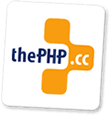DevOps Conference
DevOps
Kubernetes de Google est une plateforme d'orchestration pour des conteneurs Docker sur systèmes Linux. Afin d'automatiser son utilisation avec nos différents outils internes, nous avons écrit un module Python et un module Ansible pour procéder vers du déploiement continu. Nous aborderons les différents composants de Kubernetes, un survol de son intégration avec Mesos et une démonstration d'intégration avec Ansible.
DevOps
Automate workflows with Terraform and cloud.ca to simplify development and operations. Terraform is a tool to treat infrastructure as code. Each configuration file can describe and generate the components necessary to run an application or a data centre, which allows users to reuse deployments. The presentation will discuss ways we can use Terraform to leverage infrastructure as code and simplify deployments of simple or complex applications.
DevOps
Work takes time to flow through an organization and ultimately be deployed to production where it captures value. It’s critical to reduce time-to-production.
But velocity, for velocity’s sake, is dangerous. Microservices invite architectural complexity that few are prepared to address. In this talk, we’ll look at how high performance organizations make short work of that complexity with Spring Boot and Spring Cloud.
But velocity, for velocity’s sake, is dangerous. Microservices invite architectural complexity that few are prepared to address. In this talk, we’ll look at how high performance organizations make short work of that complexity with Spring Boot and Spring Cloud.
DevOps
A presentation on how to apply configuration management (CM) principles for your various environments, to control changes made to them. You apply CM on your code, why not on your environments content? This presentation will present the infrastructure as code principles using Chef and/or Ansible. Topics discussed include Continuous Integration, Continuous Delivery/Deployment principles, Infrastructure As Code and DevOps.
DevOps
Learn how PHP 7 is likely to impact your application and how to identify potential BC breaks. Now would also be a good time to revisit your deploy strategy to make sure it is safe, efficient and atomic and makes use of the latest features of PHP 7.
DevOps
Having a team of 250 engineers is great, but their happiness and productivity is heavily influenced by the tools made available to them.
This talk will focus on our use of GitHub, Slack, Docker, Datadog, Splunk, Buildkite, and many other tools to ensure all our developers can continue to deploy changes to Shopify, a ten year old Rails app, over twenty times a day directly affecting the lives of our 160,000 merchants.
This talk will focus on our use of GitHub, Slack, Docker, Datadog, Splunk, Buildkite, and many other tools to ensure all our developers can continue to deploy changes to Shopify, a ten year old Rails app, over twenty times a day directly affecting the lives of our 160,000 merchants.
DevOps
Learn the Pros & Cons of each style of web scaling. Should you keep buying bigger machines or lots of small ones? How does Cloud hosting now change the game? Experiences from working at Hubble Space Telescope (vertical) and Digg.com (horizontal) will be drawn upon.
DevOps
For designers and developers working alone or in small teams, making websites live, or making updates can often involve remembering what has changed and manually syncing files over FTP. This fragile process can easily leave your site broken.
In this talk aimed at designers and new developers, I look at some of the ways we can improve this process.
In this talk aimed at designers and new developers, I look at some of the ways we can improve this process.
DevOps
At Red Hat we make very extensive use of Puppet to manage systems, and Hiera to make things as data-driven as possible. With thousands of systems, and hundreds-to-thousands of Hiera keys, keeping track of what affects which *could* be a monumental manual task -- but we let Hiera's own structure automatically build and maintain its own documentation with some help from Ruby scripts. In this session I show how we do it.
DevOps
Learn how to get a Vagrant environment running quickly, using a project called Oh-My-Vagrant. I'll show some tools such as vscreen & vcssh which make it possible to connect to many vm's easily. I'll demo how to integrate with config management, and how you can use these techniques to simulate clusters of containers. This talk will include live demos of building docker containers, orchestrating them with kubernetes, and all glued together nicely.
© 2010-2025 ConFoo. All rights reserved. Code of Conduct
Cookie Consent
To provide the best experiences, the usage of cookies are necessary. Some are essential for the proper functioning of the site, while others help us better cater to your interests.






















